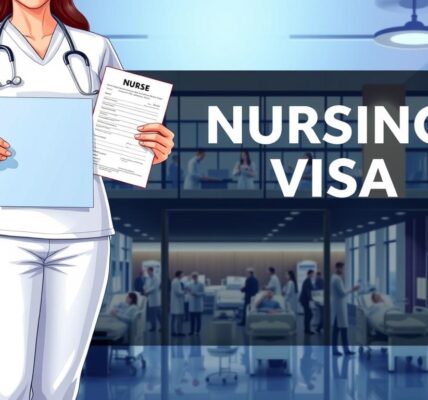Embrace New Beginnings: Discover the Benefits and Advantages of Sponsorship Visas and Marriage Visas in New Zealand
New Zealand is a top destination for skilled workers and families seeking a fresh start.
Known for its stunning landscapes and welcoming culture, it offers numerous opportunities for those looking to build a better future. One of the key pathways to residency is through partnership visas, which allow individuals to reunite with their loved ones.
These visas provide access to essential benefits like healthcare, education, and work rights. They also open doors to permanent residency, making it easier for families to settle down. Recent updates to the Accredited Employer Work Visa (AEWV) system in 2025 have streamlined the process, ensuring smoother transitions for applicants.
This article will guide you through the eligibility criteria, required documentation, and effective application strategies. Whether you’re a skilled worker or joining a partner, understanding these steps can make your journey to New Zealand a success.
For more information explore the official visa website mentioned in this article:
You will be redirected to another website
Understanding Visa Sponsorship and Marriage Visas in New Zealand
For those seeking to reunite with loved ones, New Zealand offers clear pathways through its partnership programs. These programs are designed to help families come together and build a life in a supportive environment. Whether through legal unions or long-term relationships, the country provides options tailored to different needs.
What are Visa Sponsorship and Marriage Visas?
Partnership visas are temporary residence permits for spouses of citizens, residents, or workers in the country. They allow families to live together while meeting specific criteria. There are two main types: marriage visas for legally married couples and de facto relationship visas for those who have lived together for at least 12 months.
These visas not only reunite families but also grant access to essential services like healthcare and education. They serve as a stepping stone toward permanent residency, making it easier for families to settle down.
Why Choose New Zealand for Your Visa Application?
New Zealand stands out for its family-friendly policies and transparent immigration processes. All documentation is in English, simplifying the application process for many. The country also offers a high quality of life, with access to excellent healthcare and education systems.
Recent changes in 2025 have streamlined processing for Green List occupations, making it faster for skilled workers and their families to relocate. With an 80% approval rate for partnership-based applications, the country is a reliable choice for those seeking to reunite with loved ones.
| Visa Type | Eligibility | Key Benefits |
|---|---|---|
| Marriage Visa | Legal marriage to a citizen/resident | Access to healthcare, education, and work rights |
| De Facto Visa | 12+ months of cohabitation | Pathway to permanent residency |
Eligibility Criteria for Visa Sponsorship and Marriage Visas
Understanding the eligibility criteria is crucial for a successful application. Meeting these requirements ensures a smooth process for those seeking to build a life together. Below, we break down the key factors applicants need to consider.
Who Can Apply for a Visa Sponsorship?
Sponsors must be citizens or residents of the country. They cannot support more than one partner every five years. This rule ensures fairness and prevents misuse of the system.
Income thresholds also play a role. For premium pathways, sponsors must earn at least NZD 47.41 per hour. This ensures they can financially support their partner during their stay.
Requirements for Marriage Visas
Applicants must provide proof of a genuine relationship. For a three-year visa, couples must have lived together for at least 12 months. Shorter stays have less stringent cohabitation requirements.
Special considerations apply to culturally arranged marriages. These cases require additional documentation to prove the relationship is genuine. Age verification is mandatory for both applicants and sponsors.
Medical insurance is required for pregnancy cases. This ensures access to healthcare services during critical times. Meeting these criteria is essential for a successful application.
The Application Process for Visa Sponsorship and Marriage Visas
Navigating the application process for partnership visas can seem overwhelming, but breaking it down into steps makes it manageable. Understanding each stage ensures a smoother journey and reduces the risk of errors. Below, we outline the key steps and common mistakes to avoid.
Step-by-Step Guide to Applying
The process involves four main stages: document collection, online submission, biometrics, and decision. Start by gathering all required documents, such as proof of relationship, financial stability, and medical records. Ensure all paperwork is up-to-date and translated if necessary.
Next, submit the application online. Digital submissions are faster, with processing times ranging from 3-5 months compared to 6-8 weeks for paper applications. After submission, applicants must complete biometrics, including fingerprints and photographs.
Finally, await the decision. Processing typically takes 3-6 months, but an Interim Visa is available for those needing to stay in the country during this time. Once approved, register for the Digital NZ Traveller Declaration and comply with biosecurity requirements.
Common Pitfalls to Avoid
Many applicants face delays due to avoidable errors. Expired police certificates, untranslated documents, and incomplete financial proofs are frequent issues. Double-check all paperwork before submission to prevent setbacks.
Another misconception is that visa holders automatically gain work rights. This is not always the case, so verify the conditions of your visa. Additionally, ensure all post-approval steps, like NZTD registration, are completed promptly.
| Stage | Details | Timeline |
|---|---|---|
| Document Collection | Proof of relationship, financial stability, medical records | 1-2 weeks |
| Online Submission | Digital application form | 3-5 months |
| Biometrics | Fingerprints and photographs | 1-2 weeks |
| Decision | Processing and approval | 3-6 months |
Required Documents for Visa Sponsorship and Marriage Visas
Gathering the right paperwork is a critical step in the visa application journey. Proper documentation ensures a smooth process and increases the chances of approval. Applicants must pay close attention to the types of documents required and their authenticity.
Essential Documents for Visa Sponsorship
For sponsorship applications, specific forms and certificates are mandatory. The Form for Partners Supporting Partnership-Based Temporary Entry is a key requirement. Applicants from China may need supplementary forms tailored to their region.
Joint financial records serve as strong evidence of a genuine relationship. These include bank statements, rental agreements, and utility bills. Nigerian applicants must ensure their documents are authenticated by the appropriate authorities.
Document Checklist for Marriage Visas
Marriage visa applicants must provide notarized marriage certificates and 24 months’ bank statements. Divorced individuals need to submit proof of previous marriage dissolution. These documents must be translated into English by NAATI-certified translators if they are in another language.
Digital submission protocols require scanned copies of all documents. Ensure files are clear and legible to avoid delays. Proper preparation of these documents is essential for a successful application.
Health and Character Requirements
Meeting health and character standards is a vital part of the application process. These requirements ensure the safety and well-being of both applicants and the community. They include medical examinations and police checks, which are mandatory for all applicants.
Medical Examinations and Health Checks
Applicants must undergo thorough medical exams to meet health standards. For those from high-risk countries, TB testing is mandatory. Panel physicians approved by the government conduct these exams, ensuring compliance with international standards.
For stays longer than six months, TB screening is required. Medical insurance with minimum coverage amounts is also necessary. This ensures access to healthcare services during the stay.
Character Certificates and Police Checks
Applicants must provide police clearance certificates from every country they have lived in for five or more years. These certificates must be issued within the last six months to remain valid.
For minor offenses, a character waiver process is available. This allows applicants with historical convictions to still meet the character requirements. Proper documentation is essential for a smooth application process.
Financial Requirements and Sponsorship
Meeting financial requirements is a key step in the visa application process. Applicants must demonstrate their ability to support themselves and their families. This ensures they can contribute positively to the community without relying on public resources.
Proof of Financial Stability
Applicants can show financial stability through various means. Bank statements, employment contracts, and sponsor forms are commonly accepted. These documents provide evidence of steady income or sufficient savings.
For income-based qualifications, the minimum wage threshold is NZD 25.29 per hour. Liquid assets, such as savings or investments, can also be used to meet the requirements. Cryptocurrency assets are considered, but they must be clearly documented and converted to fiat currency for verification.
Sponsorship Forms and Responsibilities
Sponsors play a crucial role in the application process. They must complete specific forms and take on certain responsibilities. These include providing accommodation, covering healthcare costs, and ensuring repatriation if necessary.
Sponsors must be residents or citizens of the country. They cannot support more than one partner every five years. This rule ensures fairness and prevents misuse of the system.
Defaulting on sponsorship obligations can have serious consequences. Sponsors may face legal action and be barred from supporting future applicants. It’s essential to understand these responsibilities before committing to the role.
| Type of Proof | Details |
|---|---|
| Bank Statements | Last 6 months of account activity |
| Employment Contracts | Proof of stable income |
| Sponsor Forms | Completed and signed by sponsor |
Living Together and Relationship Proof
Proving a genuine relationship is a key step in the immigration process. Immigration authorities require solid evidence to confirm that couples are truly living together and committed to each other. This ensures the integrity of the system and prevents misuse.
Evidence of Cohabitation
To demonstrate living together, applicants must provide documents that show shared responsibilities. Utility bills, rental agreements, and joint bank statements are commonly accepted. These should span at least 12 months to prove a stable relationship.
Social media posts and communication logs can also serve as evidence. However, they must include authenticated timestamps to be valid. Photos of the couple with family and friends further strengthen the case.
Documenting Your Relationship
Statutory declarations from witnesses are often required. These can be from friends, family, or community leaders who can vouch for the relationship. Notarized affidavits add credibility to the application.
For couples with children, joint parenting plans are essential. These documents show shared responsibilities and commitment. Handling long-distance periods requires additional proof, such as travel records and communication logs.
- Timeline documentation strategies (utility bills spanning 12+ months).
- Social media evidence guidelines: authenticated timestamps required.
- Interview preparation for immigration officers.
- Handling long-distance relationship periods.
- Notarized affidavits from community leaders or religious figures.
Work and Study Rights on Visa Sponsorship and Marriage Visas
Exploring work and study opportunities can open doors to a brighter future. Understanding your rights while living abroad is essential for making the most of your experience. This section covers the key details about employment and education options available to visa holders.
Work Rights for Visa Holders
Visa holders often have the right to work in various sectors. However, some restrictions apply depending on the type of visa. For example, open work visas may have limitations on certain occupations, especially in regulated fields like healthcare or education.
Professional registration is required for specific roles. This ensures that individuals meet the necessary standards for their employment. Additionally, visa holders must verify their status to ensure compliance with local laws.
Study Opportunities for Visa Holders
Education is another significant benefit for visa holders. Many are eligible for domestic tuition fees, making it more affordable to pursue higher education. This is particularly advantageous for those looking to enhance their skills or change career paths.
After completing their studies, individuals can transition to post-study work rights. This pathway allows them to gain practical experience in their field. For those with entrepreneurial ambitions, partnership visas also offer opportunities to start a business.
- Occupation restrictions for open work visas.
- Professional registration requirements in healthcare and education.
- Eligibility for domestic tuition fees.
- Pathway from student visa to post-study work rights.
- Entrepreneurship options under partnership visas.
Benefits of Visa Sponsorship and Marriage Visas in New Zealand
Relocating to a new country offers numerous advantages, especially when it comes to building a stable future. New Zealand provides access to essential services and long-term opportunities for families. Understanding these benefits can help applicants make informed decisions.
Access to New Zealand’s Healthcare and Education
One of the key benefits is access to public healthcare after two years. Temporary visa holders are also covered by ACC for accident-related care. This ensures families can focus on their well-being without financial stress.
Education is another significant advantage. Children of visa holders may qualify for university subsidy programs. This makes higher education more accessible and affordable for families.
Pathway to Permanent Residency
The 24-month pathway to resident status is a popular choice. It allows families to transition smoothly from temporary to permanent residency. This process is streamlined for those in the Skilled Migrant Category.
After meeting residency requirements, individuals can apply for citizenship. This opens doors to additional rights and opportunities. Families can fully integrate into the community and enjoy a high quality of life.
- Detailed comparison: Temporary vs. Resident Visa benefits.
- ACC coverage specifics for accident-related care.
- University subsidy programs for visa holders’ children.
- Skilled Migrant Category residency requirements.
- Citizenship eligibility timelines.
Conclusion
Starting a new chapter in life can be both exciting and challenging. For families seeking reunification, New Zealand offers a supportive environment with its streamlined process and access to quality education and healthcare. Early preparation of documents is crucial to ensure a smooth application journey.
Working with licensed immigration advisers, such as West Highlander Immigration, can provide valuable guidance. Upcoming policy reviews in 2026 may bring further changes, so staying informed is essential. Take the first step today by assessing your eligibility and exploring the opportunities available in New Zealand.
FAQ
What are Visa Sponsorship and Marriage Visas?
These are pathways for individuals to join their partners in New Zealand. Visa Sponsorship allows a New Zealand citizen or resident to support their partner’s application, while Marriage Visas are for legally married couples seeking to live together in the country.
Why choose New Zealand for your visa application?
New Zealand offers a high quality of life, excellent healthcare, and education systems. It also provides a clear pathway to permanent residency for those who meet the requirements.
Who can apply for a Visa Sponsorship?
A New Zealand citizen or resident can sponsor their partner, provided they meet the eligibility criteria, including financial stability and a genuine relationship.
What are the requirements for Marriage Visas?
Applicants must provide proof of a legal marriage, evidence of a genuine relationship, and meet health and character requirements.
What is the step-by-step guide to applying?
The process involves gathering required documents, submitting the application, attending medical examinations, and providing evidence of the relationship. It’s essential to follow Immigration New Zealand’s guidelines carefully.
What are common pitfalls to avoid during the application process?
Avoid incomplete forms, insufficient evidence of the relationship, and missing deadlines. Double-check all documents before submission.
What essential documents are needed for Visa Sponsorship?
Applicants must provide proof of identity, relationship evidence, financial stability documents, and sponsorship forms.
What is included in the document checklist for Marriage Visas?
The checklist includes marriage certificates, proof of cohabitation, health and character certificates, and financial documents.
What are the health and character requirements?
Applicants must undergo medical examinations and provide police certificates to prove they meet New Zealand’s health and character standards.
What proof of financial stability is required?
Sponsors must demonstrate they can support their partner financially, often through employment records, bank statements, or sponsorship forms.
What evidence is needed to prove cohabitation?
Documents like joint bank accounts, utility bills, or rental agreements can serve as proof of living together.
How can you document your relationship?
Provide photos, communication records, and statements from friends or family to show the relationship is genuine and ongoing.
What work rights do visa holders have?
Visa holders can work in New Zealand, provided their visa allows it. Some visas may have specific conditions or restrictions.
What study opportunities are available for visa holders?
Visa holders can enroll in educational institutions in New Zealand, depending on their visa type and conditions.
What are the benefits of these visas in New Zealand?
Benefits include access to healthcare, education, and a pathway to permanent residency, offering long-term stability and opportunities.
Published on: 28 de May de 2025





